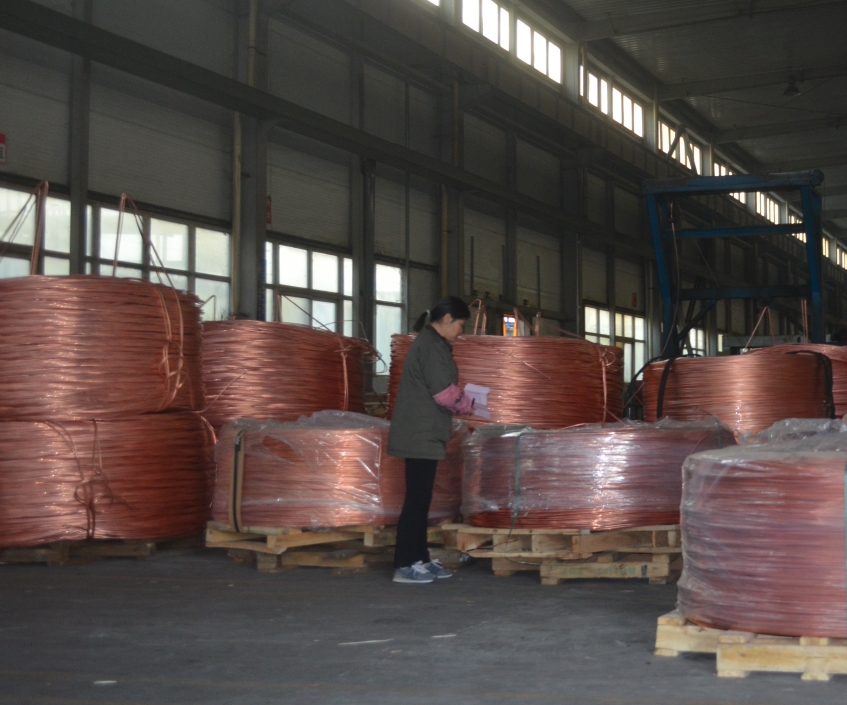Here are some common types of enameled wire:
Polyurethane (PU) Enameled Wire:
Characteristics: Good flexibility, high thermal resistance, and excellent dielectric properties.
Applications: Suitable for small transformers, coils, and inductors in electronic devices.
Polyester (PE) Enameled Wire:
Characteristics: Good chemical resistance, moderate thermal resistance, and suitable for general-purpose applications.
Applications: Commonly used in motors, solenoids, and transformers.
Polyester-imide (PEI) Enameled Wire:
Characteristics: Higher thermal resistance than polyester, improved heat shock resistance.
Applications: Suitable for motors and transformers operating at higher temperatures.
Polyamide-imide (PAI) Enameled Wire:
Characteristics: Excellent thermal and chemical resistance, suitable for high-temperature applications.
Applications: Used in high-performance motors, transformers, and aerospace applications.
Polyester-imide Overcoated with Polyamide-imide (PEI over PAI)
Enameled Wire:
Characteristics: Combines the benefits of both polyester-imide and polyamide-imide, offering enhanced thermal and electrical properties.
Applications: High-performance transformers and motors requiring superior thermal and electrical performance.
Polyester-imide Overcoated with Polyamide (PEI over PA) Enameled
Wire:
Characteristics: Combines the benefits of polyester-imide with the flexibility of polyamide.
Applications: Suitable for motors, generators, and transformers requiring flexibility and thermal resistance.
Polyester-imide Overcoated with Polyurethane (PEI over PU) Enameled Wire:
Characteristics: Combines the benefits of polyester-imide with the flexibility of polyurethane.
Applications: Used in coils and transformers requiring flexibility and good thermal resistance
Self-bonding Enameled Wire:
Characteristics: Has a special topcoat that bonds to itself after heating, eliminating the need for additional adhesive or tape.
Applications: Used in applications where self-bonding is beneficial, such as winding coils without external support.
Formvar Enameled Wire:
Characteristics: Made with a thin layer of polyvinyl formal insulation, known for its good dielectric properties.
Applications: Commonly used in small coils and transformers.
Nylon-imide (NI) Enameled Wire:
Characteristics: Offers good thermal resistance and mechanical strength.
Applications: Suitable for motors, transformers, and coils operating at elevated temperatures.


Tags:
Enameled Wire Copper wire Aluminum wire Enamelled wire Aluminum Winding Wire Magnet wire Modified polyester Round copper wire Heat resistance Enameled aluminum wire